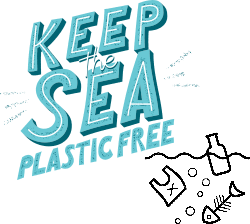In 2021, we collaborated with researchers at TREES, North-West University, to help profile tourists who participate in scientific activities. The goal was to assess the experiences of tourists partaking in meaningful actions of research and conservation, with a focus on the kelp forest environment. The case study of choice was our citizen science snorkeling activity. The study targeted one-hundred tourists, inviting our guests to participate in a brief online survey. The survey covered questions including experiential engagement, reflective engagement, knowledge of local coastal habitats, such as kelp forests, and affinity to science. The results from tourists participating in activities with us were compared with those obtained from the same number of people participating in regular marine eco-tourism activities that did not include a scientific research engagement component. Here are some of the findings!

The benefits of volunteering with Cape
RADD
Volunteering results in high levels of experiential and reflective engagement, better knowledge of marine environments and a greater affinity to science.

Volunteering with Cape RADD is about
reflection
Participating in scientific activities can stimulate reflection on marine and environmental issues, making people empathetic towards the marine environment.

Volunteering with Cape RADD is not just
eco-tourism
Volunteering in marine environmental research has
clear benefits that make it different from regular eco-
tourism activities. These include greater reflective engagement and a greater affinity to science.

Volunteering with Cape RADD is marine
stewardship
Participating in scientific volunteering activities can spark intentions to do more for the marine environment, both
directly and indirectly. Being actively busy with monitoring the marine environment makes people think about what harms it, and how they can be a part of the solution to the problem.
The outcomes of the research show a stark impact of participation in scientific activities on tourists. Both experiential and reflective engagement was strongly reported by participants, meaning that these people gained high levels of enjoyment and reflection from volunteering with Cape RADD. Additionally, the volunteers gained important knowledge of the marine environments and species they were engaged with during their time at Cape RADD. After visiting Cape RADD, they had become very interested in marine monitoring and learning about coastal environments and ecosystems. They had also gained self-efficacy, meaning that they felt they acquired important skills to carry out marine environmental monitoring and felt that their work was contributing to marine conservation. The volunteers were highly motivated to participate in similar activities in future. Similarly, they understood the value of scientific research for marine conservation, and of rigour in conducting this research. Participation in scientific volunteering had resulted in a great interest in marine environment phenomena and various technologies that can be used to collect data on these phenomena. The volunteers displayed a positive pro-environmental attitude and stewardship, wanting to change their lifestyle to reduce their impacts on marine environments, directly and indirectly.
The comparison between tourists who participated in scientific activities with Cape RADD and regular eco-tourists shows that reflective engagement was substantially higher for the volunteers at Cape RADD, suggesting that participation in scientific activities stimulates greater reflection on marine issues and the importance of science for conservation. Additionally, specific elements of scientific affinity, including, interest, content, process and nature of science knowledge and behaviour and stewardship, were substantially greater among volunteers at Cape RADD. These results suggest that participation in scientific activities at Cape RADD stimulated an affinity towards science but also greater intentions to engage in pro-environmental behaviour and stewardship with a focus on coastal and marine habitats.
The study conducted in collaboration with TREES highlights the value that scientific tourism has on many levels. Scientific tourism, including active participation in marine environment monitoring activities, creates reflection and empathy concerning marine issues. In addition, it stimulates affinity to science and pro-environmental behaviour and stewardship goals. Scientific tourism can be a valuable
form of eco-tourism thanks to its structure and its educational and formative objectives and should be supported to promote marine conservation of coastal habitats globally.
Compiled by Serena Lucrezi
0 Comments